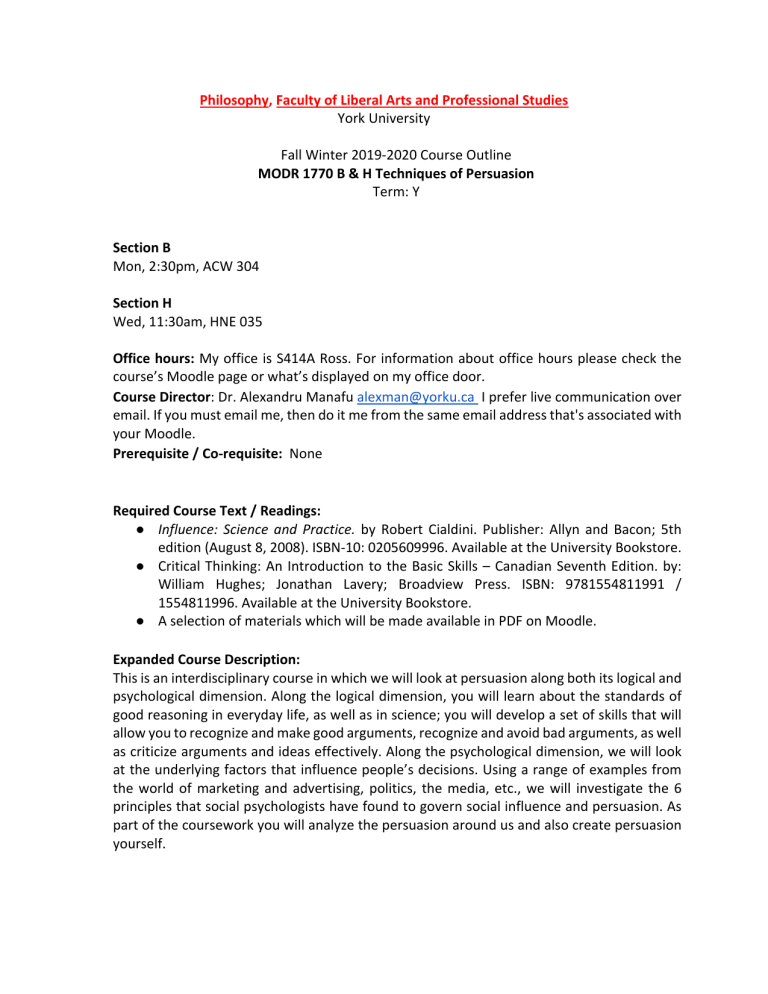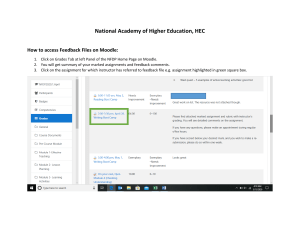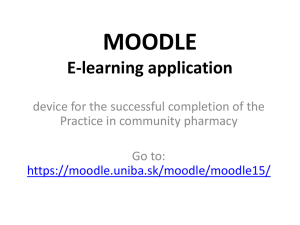
Philosophy, Faculty of Liberal Arts and Professional Studies York University Fall Winter 2019-2020 Course Outline MODR 1770 B & H Techniques of Persuasion Term: Y Section B Mon, 2:30pm, ACW 304 Section H Wed, 11:30am, HNE 035 Office hours: My office is S414A Ross. For information about office hours please check the course’s Moodle page or what’s displayed on my office door. Course Director: Dr. Alexandru Manafu alexman@yorku.ca I prefer live communication over email. If you must email me, then do it me from the same email address that's associated with your Moodle. Prerequisite / Co-requisite: None Required Course Text / Readings: ● Influence: Science and Practice. by Robert Cialdini. Publisher: Allyn and Bacon; 5th edition (August 8, 2008). ISBN-10: 0205609996. Available at the University Bookstore. ● Critical Thinking: An Introduction to the Basic Skills – Canadian Seventh Edition. by: William Hughes; Jonathan Lavery; Broadview Press. ISBN: 9781554811991 / 1554811996. Available at the University Bookstore. ● A selection of materials which will be made available in PDF on Moodle. Expanded Course Description: This is an interdisciplinary course in which we will look at persuasion along both its logical and psychological dimension. Along the logical dimension, you will learn about the standards of good reasoning in everyday life, as well as in science; you will develop a set of skills that will allow you to recognize and make good arguments, recognize and avoid bad arguments, as well as criticize arguments and ideas effectively. Along the psychological dimension, we will look at the underlying factors that influence people’s decisions. Using a range of examples from the world of marketing and advertising, politics, the media, etc., we will investigate the 6 principles that social psychologists have found to govern social influence and persuasion. As part of the coursework you will analyze the persuasion around us and also create persuasion yourself. Organization of the Course: Classes will include a combination of lecturing, class discussion, work at the board, as well as interactive problem-solving. Course Learning Objectives: This is a practical course which aims to help you build your critical thinking and persuasive argumentation skills. By the end of this course, you will: ● Be able to formulate and evaluate arguments, as well as to refute them. ● Be able to analyze persuasion productions around us using the principles that govern the psychological dimension of persuasion (reciprocation, social proof, commitment and consistency, liking, authority, scarcity). ● Recognize fallacies in reasoning. ● Be able to distinguish between good science and questionable science or pseudoscience. ● Become a better arguer and persuader. Weighting of Course: 6 Wiki entries: 12% 4 Homework assignments: 32% 1 Final project: 16% 2 End of term Moodle exams: 30% Participation: 10% Penalty points: 1% off if you ask me a question whose answer was given by me in class, or is demonstrably in the course outline or on Moodle. I prefer live communication over email. If you must email me, then do it me from the same email address that's associated with your Moodle. 1% off if you email me from an email address that’s different from the one you have on Moodle. 1% off for every email that does not respect email etiquette. NOTE: The grading scheme above will be respected strictly. I do not typically go back and revise the grades of students, nor do I allow students to do extra work to boost their marks. The main reason for this is my commitment to treat all students equally, and the fact that I like to stick to the grading scheme above. Additional Information: Wiki entries At the end of each set of lectures addressing one psychological persuasion principle (there will be 6 such sets), you will write an individual wiki entry about a persuasion production you have found which exemplifies that principle. You may write about examples of persuasion that you find in everyday life: at a store, in the mall, in a YouTube video, a web article, a picture, a poster, an advertisement, a podcast, a radio show, a passage from a book, a newspaper/online magazine article, etc. Word count: 250-500 words. Each entry is worth 2%, which will be awarded automatically (no grading) to all and only to those entries that are reasonably well prepared. Homework assignments There will be 4 homework assignments throughout the year, divided equally between semesters. The feedback on these assignments will be offered through Moodle, and the assignments’ solutions will be discussed in the subsequent class. End of term Moodle exams Each term there will be one exam, to be written during the standard examination period. The exams will be administered through Moodle, and students will need a working computing device and access to Moodle to take them. Final project At the end of the course there will be a project under the form of a creative assignment. In this assignment you will have to create a written document by which you will try to convince the general public/segment of the general public/representatives of an institution to either adopt or reject a certain standpoint with regard to a matter you care about. Word limit: around 2000 words. Participation The grade for participation (10%) will be broken down into Attendance (5%) and Engagement (5%). Attendance will be taken randomly throughout the year, so to get the best grades for attendance students will have to make an effort to attend every class. There will be 10 attendances taken throughout the year, each worth 0.5% (totaling 5%). Engagement involves sharing personal viewpoints, answering to instructor’s questions, bringing up questions, problems, exercises, demanding clarification for concepts, suggesting alternate solutions, making connections, making observations, and in general being active in class. Late assignments The penalty for late wiki entries and final project is 10% of the value of the assignment/day. Due to the fact that the answers to the homework assignments will be revealed on Moodle and feedback will be provided in the following class, no late homework assignments will be permitted. Extensions If you get sick or encounter other incapacitating problem before a deadline and are intending to ask for an extension please talk to me before the deadline explaining your situation and attaching the relevant documentation. No extensions will be provided post deadline. Missed exams If you know ahead of time that you will not be able to write your exam, you are required to talk to me or email me before the exam takes place explaining your situation and attaching the relevant documentation. If you have missed your exam due to unforeseen circumstances you have to talk to me or email me explaining your situation and attaching the relevant documentation. Make-up exams will be organized only in special circumstances, if there are serious and sufficient reasons for doing so. Technology In this course we will use Moodle and other online tools for learning. Students are expected to have with them in class a functional computing device: laptop (ideal), tablet (OK), smartphone (might work too). In addition to any other form of submission that might be requested, all coursework must be submitted through Moodle. Student questions Students are encouraged to feel free to interrupt and ask questions before/during/after the lectures, and also during office hours, which can also be requested by appointment. Office hours The office hours are displayed at the top of this document. Students are encouraged to come to the office hours and ask questions about the concepts taught in the course, homework assignments, or anything they deem necessary. To accommodate students’ schedule, the office hours can also be set by appointment. (the area below is auto populated) IMPORTANT COURSE INFORMATION The Senate Committee on Curriculum & Academic Standards Web site provides an important read, the: STUDENT INFORMATION SHEET. The Student Information Sheet includes: ● York’s Academic Honesty Policy and Procedures/Academic Integrity Website ● Access/Disability ● Ethics Review Process for Research Involving Human Participants ● Religious Observance Accommodation ● Student Conduct Standards Additional information: ● Academic Accommodation for Students with Disabilities ● Alternate Exam and Test Scheduling ● Grading Scheme and Feedback Policy The Senate Grading Scheme and Feedback Policy stipulates that (a) the grading scheme (i.e. kinds and weights of assignments, essays, exams, etc.) be announced, and be available in writing, within the first two weeks of class, and that, (b) under normal circumstances, graded feedback worth at least 15% of the final grade for Fall, Winter or Summer Term, and 30% for ‘full year’ courses offered in the Fall/Winter Term be received by students in all courses prior to the final withdrawal date from a course without receiving a grade (see the policy for exceptions to this aspect of the policy http://www.yorku.ca/secretariat/legislation/senate/gradfeed.htm “Final course grades may be adjusted to conform to Program or Faculty grades distribution profiles.” If Term Test will be held outside of regularly scheduled class time, include announcement of day, date and time here (e.g., Saturday, October 28, 2006, 10 am to 11:30, room TBA). ● "20 % Rule" No examination or test worth more than 20% of the final grade will be given during the last two weeks of classes in a term, with the exception of classes which regularly meet Friday evenings or on the weekend (Saturday and/or Sunday at any time). (Approved by Senate, November 28, 1996)




